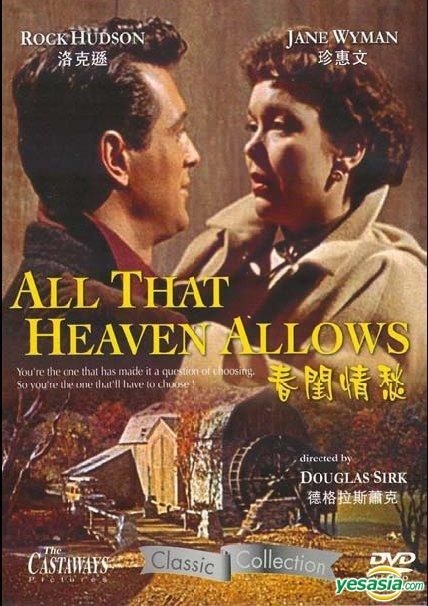
When the book sticks to discussing Hudson, it’s really quite good. Hudson had an interesting life by any standard, but author Griffin doesn’t get behind the star’s facade often enough. In the end, All That Heaven Allows could have been better. I was surprised that this section was so short, but the account still moved me. The book deals with Hudson’s 1985 death from AIDS only in the last 50 pages or so. The accounts of the films tend to run together and don’t always hold the reader’s attention. Griffin “goes on” at length about Hudson’s great looks, but is more ambivalent about his films, often judging them to be formulaic. The accounts of Hudson’s films are middling and overlong. At the same time, the reader feels some sympathy for Hudson, given how difficult it must have been to live as an in-the-closet celebrity in the 1950s. Certainly, it doesn’t cast Hudson in a positive light. The reader doesn’t really know what to make of this material – much of it is just rumor. Rock who? Mark Griffin states that Lee Majors (aka Harvey Yeary) distanced himself from Rock Hudson after becoming a star in his own right. Griffin castigates Majors for refusing to help or acknowledge Hudson while Hudson was dying of AIDS in the 1980s. Harvey Lee Yeary soon became a star under the stage name Lee Majors. Yeary did just that, dumping his wife and child soon after arriving in California and becoming Rock’s protege. Hudson encouraged the young man to move to California and pursue an acting career. While on his forays to Kentucky, Griffin states that Hudson met a young football player from Eastern Kentucky University named Harvey Lee Yeary. Griffin says that two gay men in Lexington, Kentucky, procured many UK football players for Rock on his visits to Kentucky. Even more bizarre was Hudson’s involvement in a sex scandal with college football players from the University of Kentucky.


Guys who refused to “spend time” with Rock didn’t get parts in Rock’s films. According to Griffin, Hudson had a casting couch for young men who aspired to be in his films. The most-salacious material covers the period after Hudson became a star. He portrays Hudson as highly driven to succeed as an actor and willing to engage in affairs with the many powerful gay men in Hollywood. He details all sorts of dalliances and possible dalliances. One thing that Griffin doesn’t skimp on is Rock’s sex life.

This intrigues the reader, but Griffin drops the subject after barely exploring it.

Hudson had tortured relationships with both his absent father and his abusive stepfather. In places, it’s a page turner, but it has too many dead spots.Ī major gripe is that Griffin doesn’t include enough material about Hudson’s early days in Illinois. Sunday afternoon I finished Mark Griffin’s, All that Heaven Allows – a biography of Rock Hudson.


 0 kommentar(er)
0 kommentar(er)
